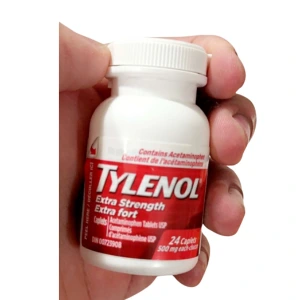List of Medicines Safe in Pregnancy – Complete Doctor-Reviewed Guide.
1. Introduction
Pregnancy is one of the most delicate and transformative stages of life. During this time, every choice a mother makes—including her use of medications—can influence both her health and her baby’s development. Many women wonder what medicines they can safely take and which ones should be avoided.
This is where a list of medicines safe in pregnancy becomes crucial. Knowing which medications are safe helps reduce risks of complications such as birth defects, miscarriage, premature labor, or poor fetal growth. According to the World Health Organization (WHO), self-medication is one of the leading causes of avoidable pregnancy complications worldwide.
In this comprehensive guide, written from the perspective of medical professionals, you will learn:
- Which medicines are considered safe during pregnancy
- Which medications should be avoided
- Alternatives for common health issues like fever, constipation, and hypertension
- Evidence-based safety advice from trusted medical organizations
The goal is simple: to give mothers and families clear, accurate, and practical information about medicines during pregnancy.
2. Why Knowing the List of Medicines Safe in Pregnancy Is Essential
- Maternal safety: Medicines can affect a mother’s blood pressure, hormone levels, and organ function.
- Fetal development: Some drugs cross the placenta and may interfere with organ formation.
- Risk reduction: Correct medication choices reduce the chance of miscarriage, birth defects, or growth issues.
👉 A list of medicines safe in pregnancy serves as a trusted reference to guide women and their families in making informed decisions.
3. General Principles for Taking Medicines During Pregnancy
Before exploring the list of medicines safe in pregnancy, it’s important to understand a few guiding principles:
- Consultation is mandatory – never start or stop medication without a healthcare provider.
- Trimester matters – some drugs are safe early on but unsafe later in pregnancy.
- Lowest effective dose – always aim for the smallest possible dose for the shortest duration.
- Lifestyle first – whenever possible, non-medical remedies (hydration, diet, rest) should be tried before medication.
4. What Pain Medicine Is Safe During Pregnancy?
Pregnancy often brings headaches, backaches, and body discomfort. But not all painkillers are safe.
- Safe pain medicines:
- Acetaminophen (Tylenol/Paracetamol) – safest option
- Certain opioids (only under prescription and short-term use) – for severe pain only
- Unsafe or risky pain medicines:
- Ibuprofen, aspirin, and naproxen (NSAIDs): may cause miscarriage in early pregnancy and heart/kidney problems in later stages
- Codeine (without supervision): linked with withdrawal symptoms in newborns
One of the most asked questions is: “Can you take Tylenol while pregnant?”
👉 Tylenol (acetaminophen) is considered the safest choice for mild pain and fever during pregnancy. It remains on every trusted list of medicines safe for use in pregnancy and is the first-line recommendation for pain relief.
“For any questions about safe medicines in pregnancy, you can reach out directly at consultation@erectileandfertilityguide.com for professional guidance.”
5. What Fever Medicine Is Safe in Pregnancy?
Fever during pregnancy should never be ignored, as high maternal temperature can affect the baby.
- Safe option: Acetaminophen remains the first-line fever medicine.
- What to avoid: Ibuprofen, aspirin, and other NSAIDs are unsafe.
- When to seek help: If fever is above 38.5°C (101.3°F), or lasts more than 48 hours.
👉 Ibuprofen medicine is unsafe in pregnancy.
6. What Constipation Medicine Is Safe in Pregnancy?
Constipation is extremely common due to hormonal changes and iron supplements.
- Safe constipation medicines:
- Bulk-forming agents: psyllium (Metamucil), methylcellulose
- Stool softeners: docusate sodium
- Osmotic laxatives: lactulose, polyethylene glycol (under guidance)
- Glycerine suppository
- Medicines to avoid:
- Stimulant laxatives (senna, bisacodyl) unless prescribed, as they may trigger uterine contractions
7. What antihypertensives (Blood Pressure) Medicine Is Safe in Pregnancy?
High blood pressure in pregnancy can lead to preeclampsia, growth restriction, and preterm delivery.
- Safe antihypertensives:
- Methyldopa – oldest and safest
- Labetalol – first choice in many guidelines
- Nifedipine (extended-release) – commonly prescribed
- Hydralazine (extra safe option)
- Unsafe antihypertensives:
- ACE inhibitors (enalapril, lisinopril) – risk of fetal kidney damage
- ARBs (losartan, valsartan) – harmful to fetal growth
8. Medicines for Cold, Cough, and Allergies in Pregnancy
- Safe antihistamines: loratadine, cetirizine
- Safe cough remedies: honey, warm fluids, saline sprays
- Prescription options: dextromethorphan (only if approved)
- Antibiotics Safe in Pregnancy
Infections can be harmful if untreated, but antibiotic choice matters.
- Safe antibiotics:
- Penicillins (amoxicillin, ampicillin, augmentin)
- Cephalosporins (cephalexin, cefuroxime, Cefixime, Cefotoxime, Ceftriaxone)
- Erythromycin (except estolate form)
👉 Clindamycin and doxycycline are unsafe in pregnancy
- Unsafe antibiotics:
- Tetracyclines – (Clindamycin and doxycycline) affect bone and teeth development
- Fluoroquinolones – (ciprofloxacin) linked with cartilage issues
9. Anti-spasmodic & Anti-ulcer medicine safe in pregnancy
Anti-ulcer Drugs 
- Lansoprazole
- Gaviscon
- Sucralfate
👉 Metronidazole can be used in pregnancy, but with caution.
Anti-spasmodic
- Nospa (Drotaverin)
- Spaslar (Phloroglucinol)
10. Vitamins and Supplements Safe in Pregnancy
- Folic acid – essential to prevent neural tube defects
- Iron – prevents anemia
- Calcium + Vitamin D – bone health
- Omega-3 (DHA) – brain development
⚠️ Avoid excess Vitamin A (risk of birth defects).
11. Medicines to Strictly Avoid in Pregnancy
Some medicines should never be used during pregnancy:
- Isotretinoin (Accutane) – severe birth defects
- Warfarin – risk of fetal bleeding and abnormalities
- Misoprostol – can induce labor or miscarriage
- Thalidomide – known teratogen
List of Medicines Safe in Pregnancy
| Condition | Safe Medicines in Pregnancy | Unsafe Medicines in Pregnancy |
| Pain / Fever | Acetaminophen (Paracetamol, Tylenol) | Ibuprofen, Aspirin, Naproxen (esp. 3rd trimester) |
| Infections (Antibiotics) | Amoxicillin, Cephalexin, Cephradine, Cefixime, Cefotaxime, Azithromycin, Ceftriaxone | Tetracyclines, Fluoroquinolones, Aminoglycosides (unless life-saving) |
| Ulcer / Acid Reflux | Ranitidine, Lansoprazole, Gaviscon, Sucralfate | Omeprazole (limited safety data in 1st trimester), Misoprostol |
| Cold / Allergy | Diphenhydramine, Levocetirizine, Loratadine | Pseudoephedrine (especially 1st trimester), Chlorpheniramine (caution in late pregnancy) |
| Nausea / Vomiting (Anti-emetics) | Doxylamine, Dimenhydrinate (Gravinate), Ondansetron (use with caution) | Metoclopramide (caution, not first choice), Thalidomide |
| Constipation | Psyllium (Ispaghula husk), Lactulose, Glycerine suppository | Senna (stimulative, caution), Bisacodyl (unsupervised, may cause uterine contractions) |
| High Blood Pressure | Methyldopa, Labetalol, Nifedipine | ACE inhibitors (Enalapril, Lisinopril), ARBs (Losartan, Valsartan) |
| Fungal Infections | Clotrimazole vaginal cream | Oral Fluconazole (high doses linked with birth defects) |
| Allergic Reactions | Diphenhydramine, Loratadine, Levocetirizine | Corticosteroids (systemic, unless medically necessary) |
| Spasms / Cramping | Drotaverine (No-Spa), Phloroglucinol (Spaslar) | NSAIDs (due to uterine effects) |
Conclusion
The list of medicines safe in pregnancy provides guidance for mothers and families, but it should never replace professional advice. While certain drugs like acetaminophen, methyldopa, and folic acid are widely considered safe, every pregnancy is unique.
The safest approach is always consultation with a healthcare provider before taking any medicine. With the right knowledge and medical guidance, pregnancy can remain healthy and safe for both mother and child.
FAQ
- Is Dramamine safe in pregnancy?
Yes, Dramamine (dimenhydrinate) is generally considered safe in pregnancy for nausea and motion sickness, but only under medical guidance. - Is hyaluronic acid safe in pregnancy?
Topical hyaluronic acid is safe in pregnancy for skin hydration, as it does not penetrate deeply or affect the baby. - Is Miralax safe in pregnancy?
Yes, Miralax (polyethylene glycol) is safe for constipation relief in pregnancy, but long-term use should be monitored by a doctor. - Is Valacyclovir safe in pregnancy?
Valacyclovir is considered safe in pregnancy and is often prescribed for herpes infections to reduce risks to the baby. - Is Albuterol safe in pregnancy?
Yes, Albuterol inhalers are safe in pregnancy and are the preferred option for controlling asthma symptoms. - Is Aspirin safe in pregnancy?
Low-dose aspirin may be prescribed for preeclampsia prevention, but regular/high doses are unsafe in pregnancy. - Is Benzoyl Peroxide safe in pregnancy?
Topical benzoyl peroxide is considered safe in pregnancy when used in small amounts for acne treatment. - Is sex safe in pregnancy?
Yes, sex is safe in most healthy pregnancies unless your doctor advises against it due to complications like placenta previa or preterm labor risk.References
- American College of Obstetricians and Gynecologists (ACOG). Medications and Pregnancy: What You Need to Know. Available at: https://www.acog.org/womens-health/faqs/medications-and-pregnancy
- Mayo Clinic. Pregnancy and Medication Safety: What’s Safe and What’s Not. Available at: https://www.mayoclinic.org/healthy-lifestyle/pregnancy-week-by-week/in-depth/pregnancy-medications/art-20043823
- U.S. Food & Drug Administration (FDA). Medications and Pregnancy. Available at: https://www.fda.gov/pregnancy-and-medication
- Drugs.com. Safe Medications During Pregnancy. Available at: https://www.drugs.com/pregnancy
- National Health Service (NHS UK). Medications in Pregnancy: Which Medicines Are Safe? Available at: https://www.nhs.uk/pregnancy/keeping-well/medicines-in-pregnancy/
- World Health Organization (WHO). Safe Use of Medicines During Pregnancy. Available at: https://www.who.int/publications/i/item/9789241512330
- Cleveland Clinic. Medications and Pregnancy: A Complete Guide for Moms-to-Be. Available at: https://my.clevelandclinic.org/health/articles/21263-medications-in-pregnancy
- American Pregnancy Association. Prescription and Over-the-Counter Medications During Pregnancy. Available at: https://americanpregnancy.org/healthy-pregnancy/pregnancy-health-wellness/medications-during-pregnancy/
- MedlinePlus. Drugs and Pregnancy. Available at: https://medlineplus.gov/drugsandpregnancy.html
- Harvard Health Publishing. Pregnancy and Medications: What’s Safe for Moms and Babies. Available at: https://www.health.harvard.edu/pregnancy-and-parenting/pregnancy-and-medications


